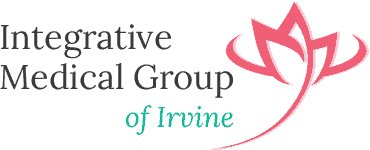IT’S ALWAYS NICE to go into the New Year with some good news. Just before Christmas, the Senate passed by unanimous consent a resolution recognising the seriousness of Polycystic Ovary Syndrome and supporting the designation of September 2018 as ‘Polycystic Ovary Syndrome Awareness Month’. PCOS is the most common endocrine disorder to affect women. It affects up to one in five of us and yet there are still so many of us who don’t know we have it, don’t know anything about it, or find it difficult to get the information we need to learn about it!
As a physician who specializes in PCOS and as a sufferer of PCOS, I understand the pain that so many women around the world experience through a lack of information. Conventional medicine has been failing women and now we have an opportunity to correct that. The best thing about the resolution is that it means there will be more research grants for those looking into PCOS, and more research done in general into PCOS. Since one of the major issues associated with PCOS relates to misdiagnosis, greater research should lead to a greater number of correct diagnoses.
But even when PCOS sufferers are correctly diagnosed, the treatment historically and currently available––for example, the unilateral prescription of birth-control pills––hasn’t been and isn’t good enough. Only recently, chemical contraceptives were in the news because of their correlation with a greater risk of breast cancer. Finnish and Danish researchers found that for a woman taking birth control pills for 10 years or more (which is very common among PCOS sufferers) her chances of developing breast cancer are increased by 40%. Meanwhile the drug Metformin, which is commonly prescribed, has been found to be an endocrine disruptor and is being used to treat PCOS, which already leads to a high level of endocrine disruption!
That’s why this resolution is hugely important. It recognizes that PCOS exists, and is prevalent in women of all ages. It means that many PCOS sufferers won’t have to wait until they’re trying to get pregnant to find out they have PCOS, which is often what happens. It means that many women will no longer receive fragmented care because they have sought out a medical professional only for the symptom that troubles them the most. It will help women to understand how lifestyle changes, such as pursuing a healthy diet, establishing a sleep routine and reducing stress through meditation, can substantially reduce the chronic inflammation in the body that is a main driver of PCOS.
The resolution represents a positive first step towards raising awareness in both the most important PCOS communities: the medical community and the patient community. For the first, research and treatment, and for the second, community and support. We in the medical community now need to continue the work we’ve done and to keep working to spread the message about PCOS and improve the quality of life for the women and girls who suffer from it.









